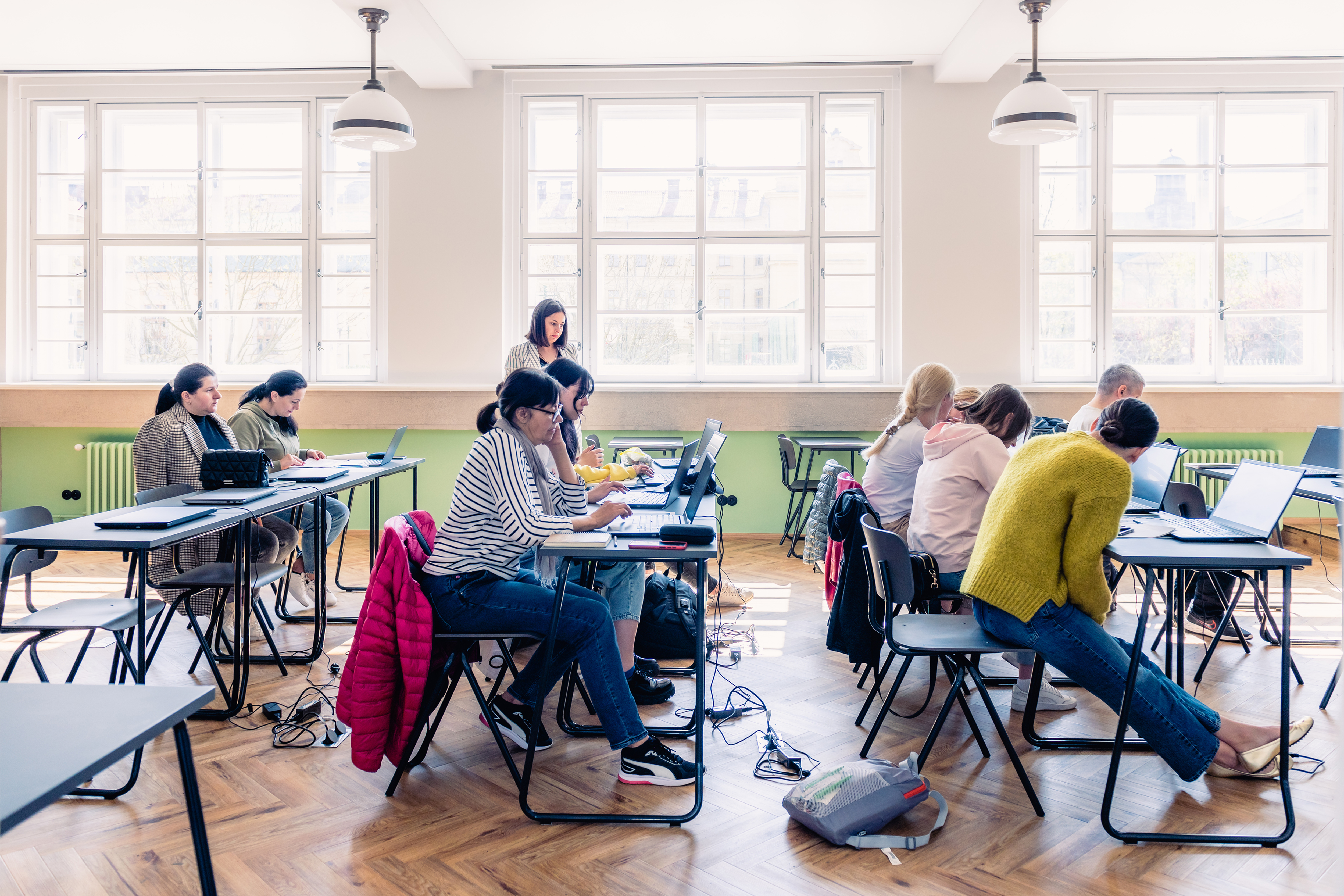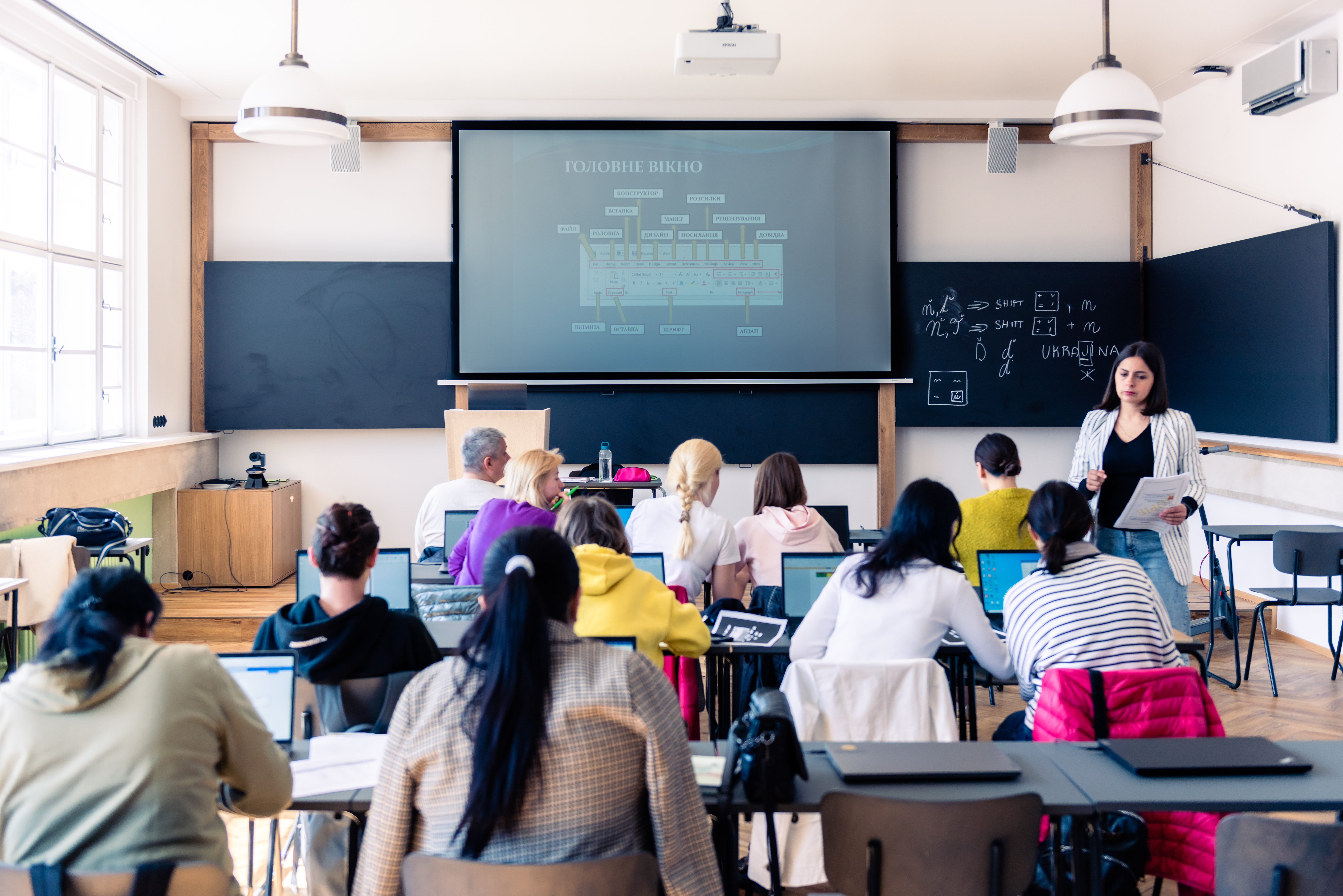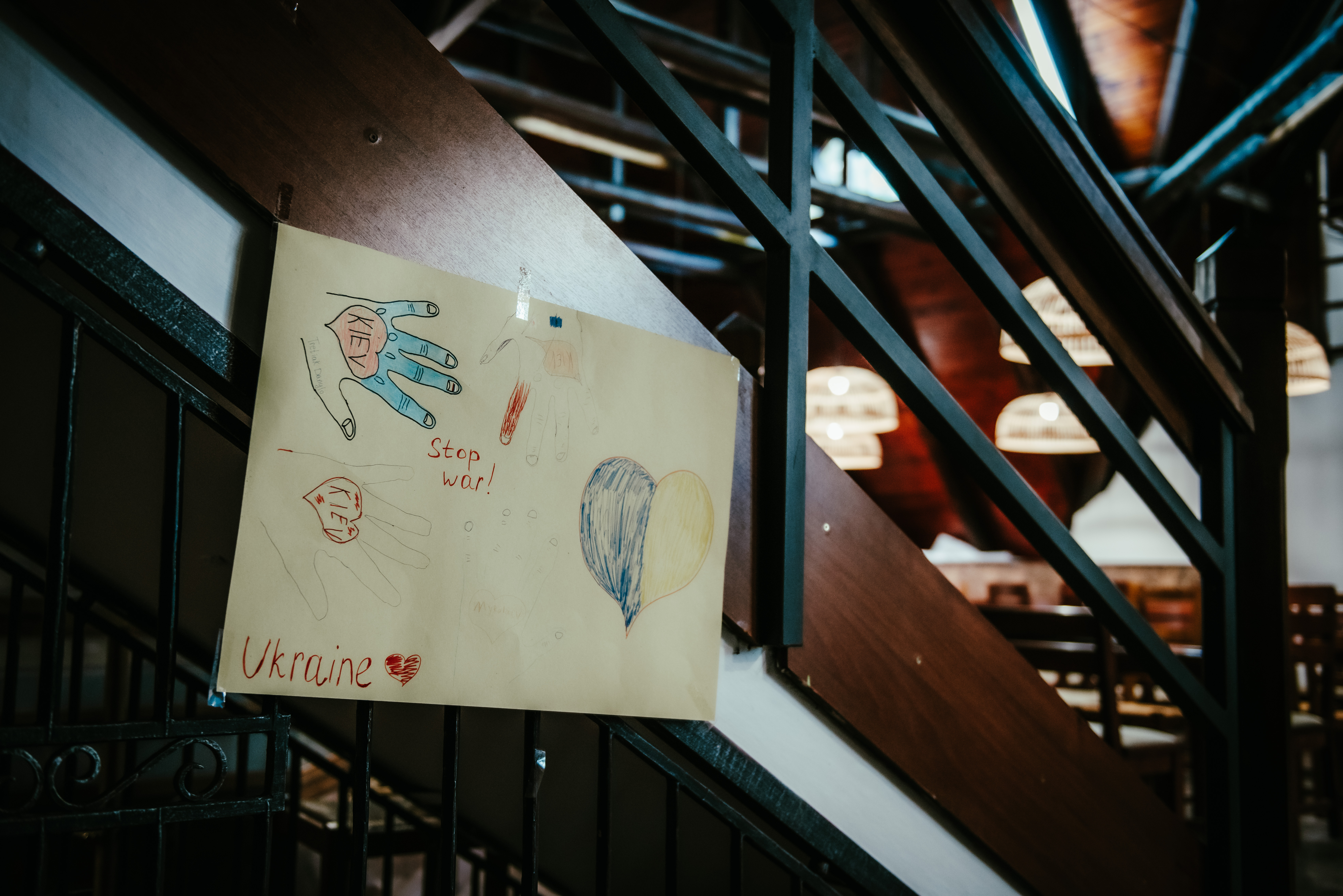You speak good Czech. Did you really learn it that quickly?
I already knew some – since I was 15 years old I had come to the Czech Republic every summer to visit my parents who live here. I had considered studying here and I took Czech language courses ten years ago. But I didn’t want to leave Ukraine: I like it there, I also graduated from university there, I met my husband and soon our daughter was born. Now my knowledge of Czech comes in handy. I still make mistakes, but I understand and I’m trying to improve, and especially to help others.
 Children are taught here in the morning and adults in the afternoon.
Children are taught here in the morning and adults in the afternoon.
How did you get into teaching Czech?
To get my daughter involved in lessons here, I took advantage of the language courses available here in Mladá Boleslav with the help of a grant from ŠKODA. Unfortunately, it turned out that our children did not understand the teacher, so I offered to help with interpreting. And since there were not enough teachers, I started coming and helping our people to learn the basics of Czech.
How many people attend the classes?
I have been helping to teach the children together with my Czech friend Tereza since March. There are 50 children from Ukraine in the class, and thanks to Tereza I also learn something new every time. My knowledge of Czech is already sufficient to teach our adults as well. We have a number of specialists among us, nurses, a pharmacist and others, whose qualifications are recognised by the Czech state, but specialisation and work experience are no good if you don’t speak the language.
 The lessons take place in the Koliba hotel and restaurant in Mladá Boleslav.
The lessons take place in the Koliba hotel and restaurant in Mladá Boleslav.
How difficult is the Czech language for people from Ukraine?
Our languages are very different. Pronunciation is difficult for us, many words are completely different, we have more characters in Ukrainian, we don’t use diacritics. We have different genders: the word for tram is masculine in Ukrainian, for example. But that’s not the main problem. I think it’s not important how difficult the language is, the main thing is the will of a person to learn. You have to want to – anyone who really wants to will manage.
Do children find it easier to pick up Czech than adults?
I also have to explain to children why they need to learn Czech. It’s not easy for them and many of them argue that they will soon return home and won’t need Czech. So I tell them that when they learn a new language, they train their brains, it’s like sport. When you do physical activity, your body looks in good shape, and the same goes for mental exercise. I explain to kids and adults that they are doing something for themselves. Most people didn’t want to leave: we’re not here because we’re poor and want to stay, but because a war broke out in our country. We belong in Ukraine, we want to go back there as soon as possible.
 Czech and Ukrainian are very different, with pronunciation often being a problem.
Czech and Ukrainian are very different, with pronunciation often being a problem.



























